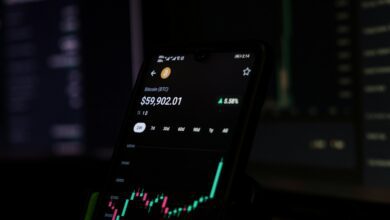The hidden world of crypto: why big trades happen off the books

The tale of two markets: public versus private
In the bustling world of cryptocurrency trading, two distinct ecosystems operate side by side, each serving different needs and philosophies. Most retail investors know the public face of crypto trading: centralized exchanges with their order books, real-time price feeds, and transparent transaction volumes. But lurking beneath this visible surface lies a quieter, more discreet world where the largest transactions take place away from prying eyes. This is the realm of over-the-counter trading, and understanding its role is crucial for anyone serious about the crypto markets. For those exploring comprehensive trading solutions, platforms like PayPilot offer both traditional exchange features and more specialized services.
The fundamental difference between these two markets is not just about size or volume, but about philosophy and approach. Public exchanges operate on transparency and democratization – anyone can see the order book, track price movements, and participate in price discovery. This openness creates liquidity and helps establish fair market value, but it also means that every trade is visible to the world. When someone wants to buy or sell a million dollars worth of Bitcoin on Binance or Coinbase, that order shows up in the books, potentially moving the market before the trade even executes.
OTC trading flips this dynamic entirely. Instead of broadcasting intentions to the world, buyers and sellers work through intermediaries – OTC desks – that facilitate private transactions at negotiated prices. These trades happen off the order books, invisible to the public, and settled directly between parties. The psychology behind this preference is straightforward: when you are moving serious money, you want control over timing, pricing, and privacy. You do not want your trading strategy telegraphed to competitors or your portfolio movements becoming market gossip.
This split between public and private markets is not unique to crypto. Traditional financial markets have operated this way for decades, with institutional trades often happening in dark pools away from retail order flow. What makes crypto OTC particularly interesting is how it has evolved to serve not just traditional institutions, but also crypto-native players like mining companies, early investors, and DeFi protocols that need to manage large positions without destabilizing the very markets they depend on.
Inside the mechanics of private deals
Understanding how OTC trades actually work reveals a system that is both more complex and more personal than standard exchange trading. The process typically begins with a phone call or secure message to an OTC desk. The client explains what they want to accomplish – perhaps they need to convert a large amount of Bitcoin to stablecoins, or they want to accumulate a position in Ethereum without causing price spikes. This initial conversation is crucial because it allows the desk to understand not just the trade size, but the client’s constraints and preferences.
Price discovery in OTC markets is an art as much as a science. Unlike exchanges where the price is determined by the highest bid and lowest ask, OTC prices are negotiated based on current market conditions, trade size, urgency, and the specific assets involved. The OTC desk will typically provide a quote that reflects current exchange rates but may include adjustments for the size and complexity of the trade. For very large transactions, the desk might need time to source liquidity from multiple providers, which can affect pricing and execution time.
The execution phase is where OTC trading really differentiates itself. Instead of matching orders against an impersonal order book, the desk acts as an intermediary, either taking the opposite side of the trade using their own capital or finding another client with complementary needs. This personal touch allows for flexibility in settlement terms – trades can be structured to happen over time, in multiple tranches, or with specific timing requirements that would be impossible on a traditional exchange.
Settlement in OTC trades often involves additional layers of security and verification. Many desks use escrow services or require multiple confirmations before releasing funds. The timeline can vary from near-instant for standard trades to several hours or even days for complex transactions involving multiple assets or jurisdictions. This slower pace is not a bug but a feature – it allows all parties to verify the details and ensure everything is correct before the transaction becomes irreversible.
The privacy premium: why discretion matters
Privacy in financial markets is not just about hiding illegal activity – it is a legitimate business need that spans from protecting trading strategies to avoiding unwanted market attention. In the crypto world, where markets are relatively small and easily influenced, the ability to trade without revealing your hand has become increasingly valuable. Large holders, known as whales in crypto parlance, understand that their movements can single-handedly move markets, creating a self-defeating cycle where the act of trading reduces the value of their holdings.
Consider a mining company that needs to regularly convert Bitcoin into fiat currency to pay operational expenses. If they were to dump large amounts on public exchanges every month, it could depress the price and reduce their future revenue. By using OTC services, they can liquidate positions at more stable prices without creating market panic. This stability benefits not just the mining company, but the entire ecosystem by reducing volatility and creating more predictable markets. To understand more about the broader ecosystem that supports such activities, exploring options like https://www.paypilot.org/crypto-exchange/ can provide valuable insights.
Institutional investors face similar challenges but with additional regulatory and fiduciary considerations. A pension fund or hedge fund buying crypto cannot afford to have their investment strategies become public knowledge. OTC trading allows them to accumulate or divest positions gradually, without tipping off competitors or clients about their crypto allocation strategy. The confidentiality extends beyond just the trade itself – many OTC desks sign non-disclosure agreements and maintain strict confidentiality about their client relationships.
The privacy premium is real and measurable. OTC trades often happen at prices that are slightly different from public exchange rates, reflecting the value of discretion and the cost of sourcing private liquidity. For many large traders, this premium is a small price to pay for the ability to execute their strategy without market interference. The question becomes not whether to pay for privacy, but how much it is worth for any given situation.
The trade-offs and hidden costs
While OTC trading offers compelling advantages for large transactions, it comes with its own set of challenges and considerations that are not immediately obvious. The most significant trade-off is the loss of price transparency that makes public exchanges so efficient. When you trade on Coinbase or Binance, you know exactly what price you will get before you execute the trade. OTC pricing, by contrast, is opaque and can vary significantly between different desks, requiring clients to shop around and negotiate to ensure they are getting fair terms.
Counterparty risk is another factor that does not exist in the same way on major exchanges. When you trade on a regulated exchange, the platform acts as an intermediary and typically provides some form of insurance or guarantee. OTC trades, however, rely on the reputation and financial stability of the desk and the counterparty. While most established OTC providers are reliable, the lack of regulatory oversight means that due diligence becomes the client’s responsibility. Stories of OTC desks disappearing with client funds are rare but not unheard of.
The minimum trade sizes for OTC services can also be prohibitive for smaller investors. Most desks focus on transactions of at least six figures, with many preferring seven or eight-figure deals. This creates a natural barrier that keeps OTC trading in the realm of institutions and high-net-worth individuals. The specialization makes sense from a business perspective – the overhead of managing private relationships and custom settlement procedures only becomes economical at larger trade sizes.
Time is another consideration that cuts both ways. While OTC trades can be faster than exchanges for very large orders that might take hours to fill through public order books, they can also be slower due to the negotiation and verification processes involved. For traders used to the instant execution of exchange trading, the back-and-forth of OTC negotiations can feel cumbersome. However, this slower pace often results in better execution and fewer surprises, making it a worthwhile trade-off for patient traders.
The future of private crypto markets
As the cryptocurrency market continues to mature and attract institutional capital, the role of OTC trading is likely to become even more important. The infrastructure around private crypto trading is evolving rapidly, with new technologies and service models emerging to serve the growing demand. Smart contracts are beginning to enable more automated and trustless OTC transactions, reducing counterparty risk while maintaining privacy. These developments point toward a future where the benefits of OTC trading become more accessible to a broader range of participants.
Regulatory developments will also shape the future of crypto OTC trading. As governments around the world develop frameworks for digital assets, OTC desks are likely to face increased compliance requirements that could standardize practices and provide more protection for clients. This regulation may reduce some of the flexibility that makes OTC attractive, but it could also increase confidence and participation by risk-averse institutional investors.
The integration of traditional finance and crypto markets is creating new hybrid models that blend the benefits of both public and private trading. Some platforms now offer “dark pool” features that allow large trades to be executed privately but still settled through established exchange infrastructure. These innovations suggest that the future of crypto trading may not be a choice between public and private, but rather a spectrum of options that traders can select based on their specific needs.
Ultimately, the growth of OTC crypto trading reflects the market’s maturation and the increasing sophistication of its participants. As digital assets become a more significant part of global finance, the infrastructure supporting them must evolve to meet institutional standards of professionalism, security, and service. The quiet world of OTC trading may never capture headlines like exchange-based price movements do, but it is playing a crucial role in building the foundation for crypto’s integration into the broader financial system.






